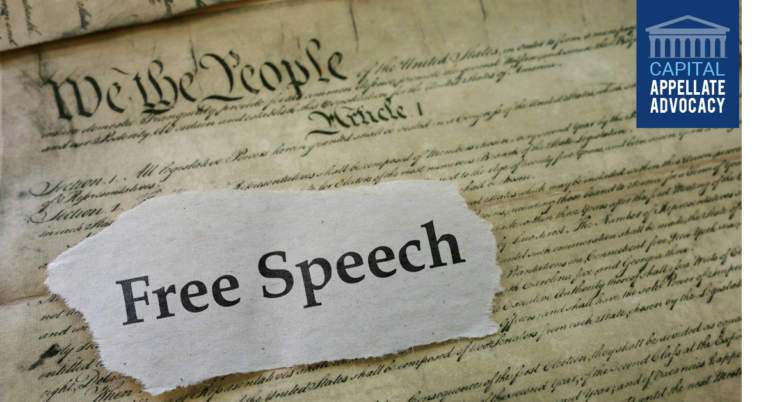When the Supreme Court denies certiorari, i.e., declines to hear an appeal, it normally issues a one-line order without explanation. Sometimes, however, one or more Justices will file a formal dissent discussing why the Court should have granted review.
Justice Alito’s November 25, 2019 dissent from the denial of certiorari in two related defamation suits, National Review, Inc. v. Mann, No. 18-1451, and Competitive Enterprise Institute v. Mann, No. 18-1477, should be read by anyone interested in freedom of expression. According to Justice Alito’s dissent, “[t]he case presents questions that go to the very heart of the constitutional guarantee of freedom of speech and freedom of the press: the protection afforded to journalists and others who use harsh language in criticizing opposing advocacy on one of the most important public issues of the day.”
The issue is man-made climate change. The alleged defamation involves publication-hosted blogs that harshly criticized a Penn State professor’s climate change-related research. The defendant publications asked the Supreme Court to review the lower courts’ refusal to dismiss the suit.
Justice Alito’s dissent indicates that one of the important legal questions presented by the appeal was “whether the First Amendment permits defamation liability for expressing a subjective opinion about a matter of scientific or political controversy.”
The dissent explains that “[t]he constitutional guarantee of freedom of expression serves many purposes, but its most important role is protection of robust and uninhibited debate on important political and social issues. . . . If citizens cannot speak freely and without fear about the most important issues of the day, real self-government is not possible. . . . To ensure that our democracy is preserved and is permitted to flourish, this Court must closely scrutinize any restrictions on the statements that can be made on important public policy issues. Otherwise, such restrictions can easily be used to silence the expression of unpopular views.”
More specifically, “[c]limate change has staked a place at the very center of this Nation’s public discourse. Politicians, journalists, academics, and ordinary Americans discuss and debate various aspects of climate change daily—its causes, extent, urgency, consequences, and the appropriate policies for addressing it. The core purpose of the constitutional protection of freedom of expression is to ensure that all opinions on such issues have a chance to be heard and considered.”
Justice Alito did “not suggest that speech that touches on an important and controversial issue is always immune from challenge under state defamation law.” And he “expressed no opinion on whether the speech at issue in this case is or is not entitled to First Amendment protection.” But he did emphasize that “the standard to be applied in a case like this is immensely important.” Further, “requiring a free speech claimant to undergo a trial after a ruling that may be constitutionally flawed is no small burden.”

